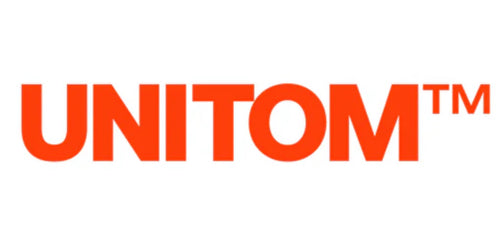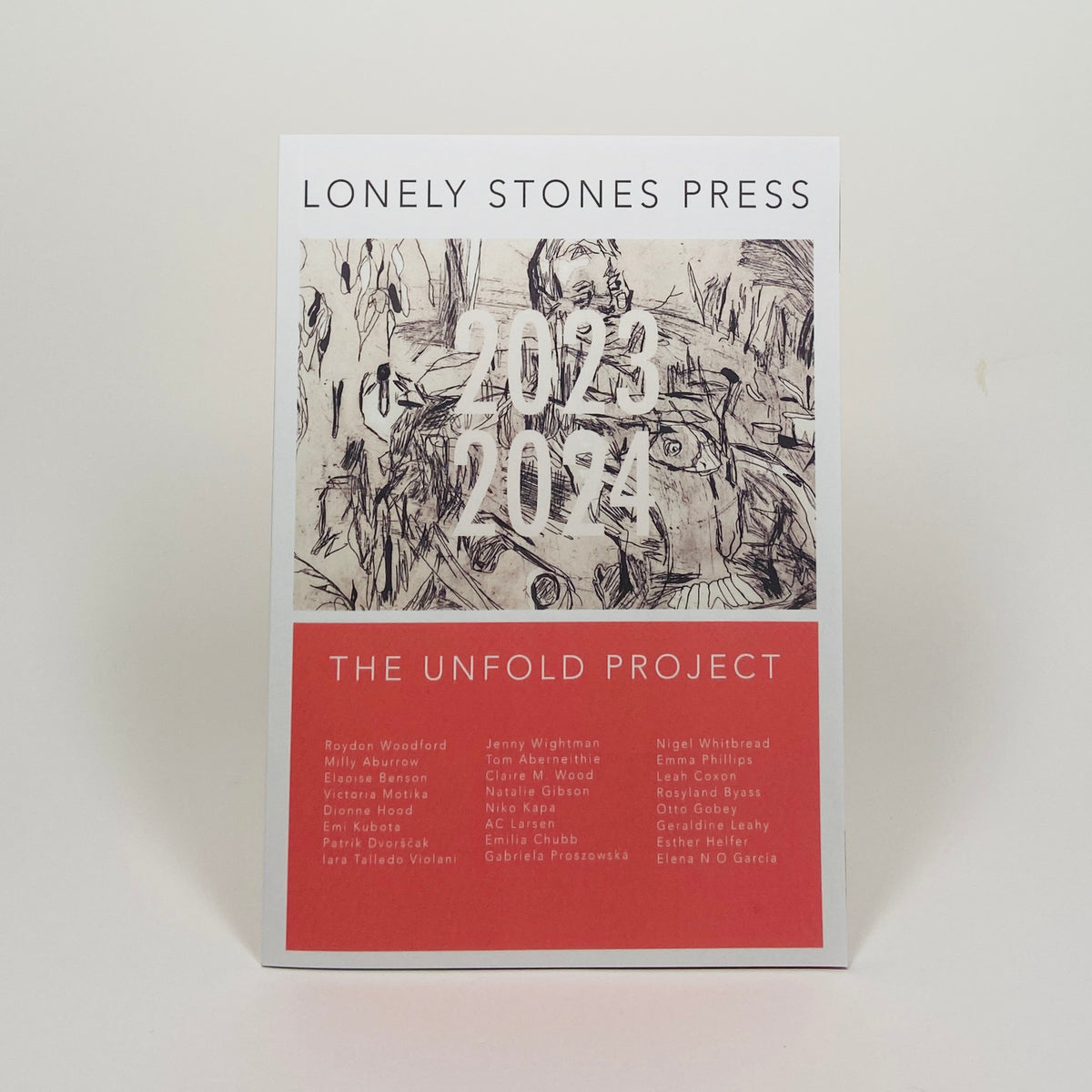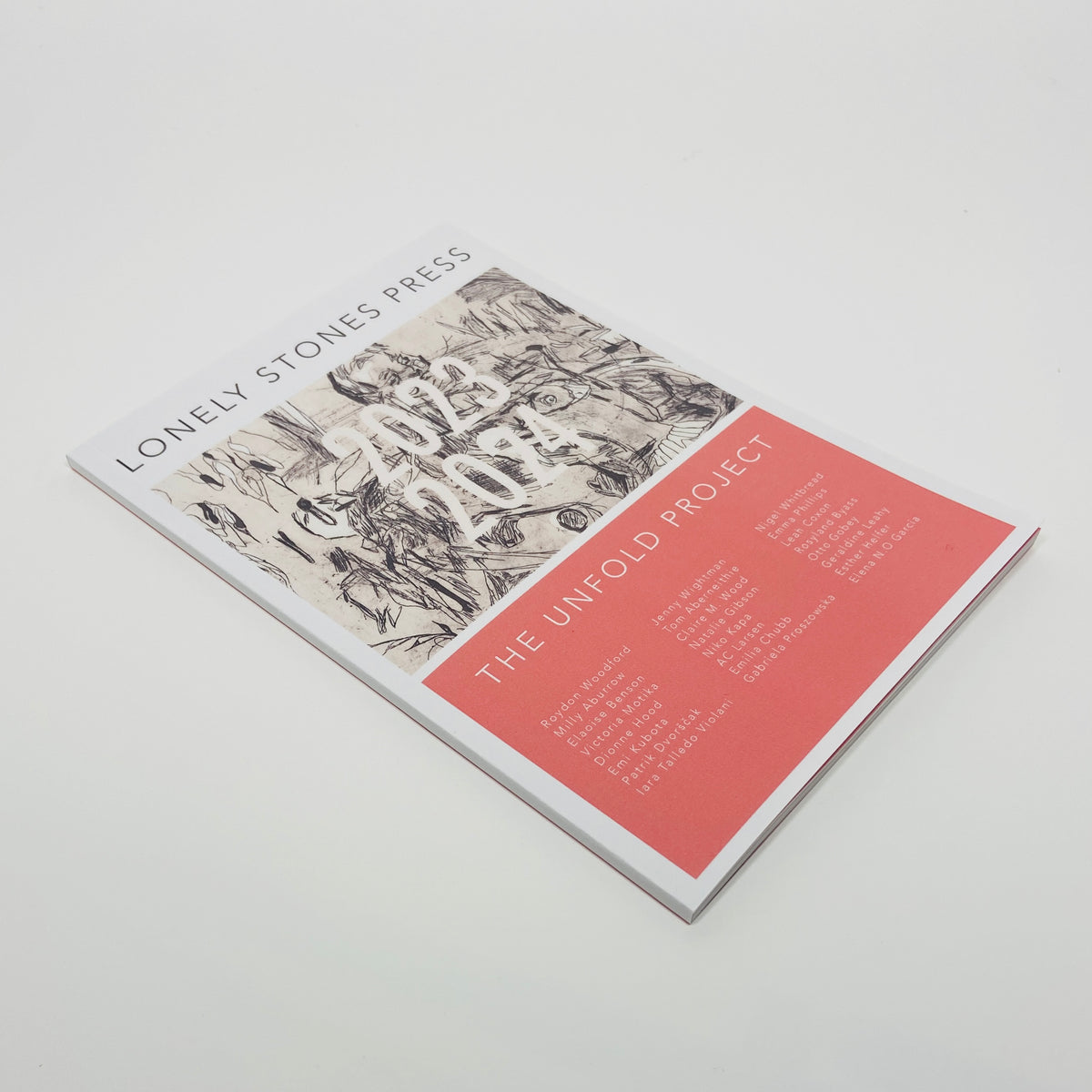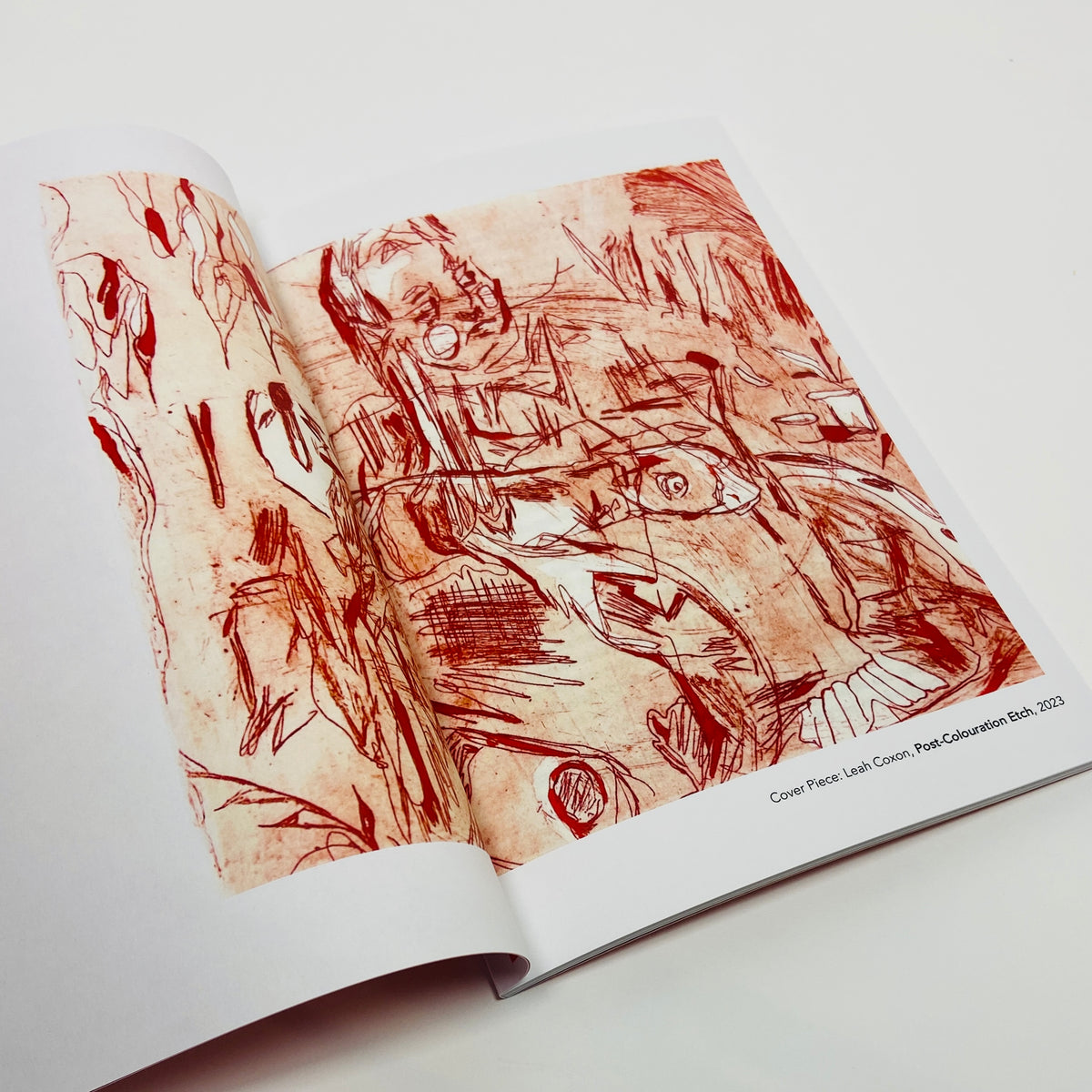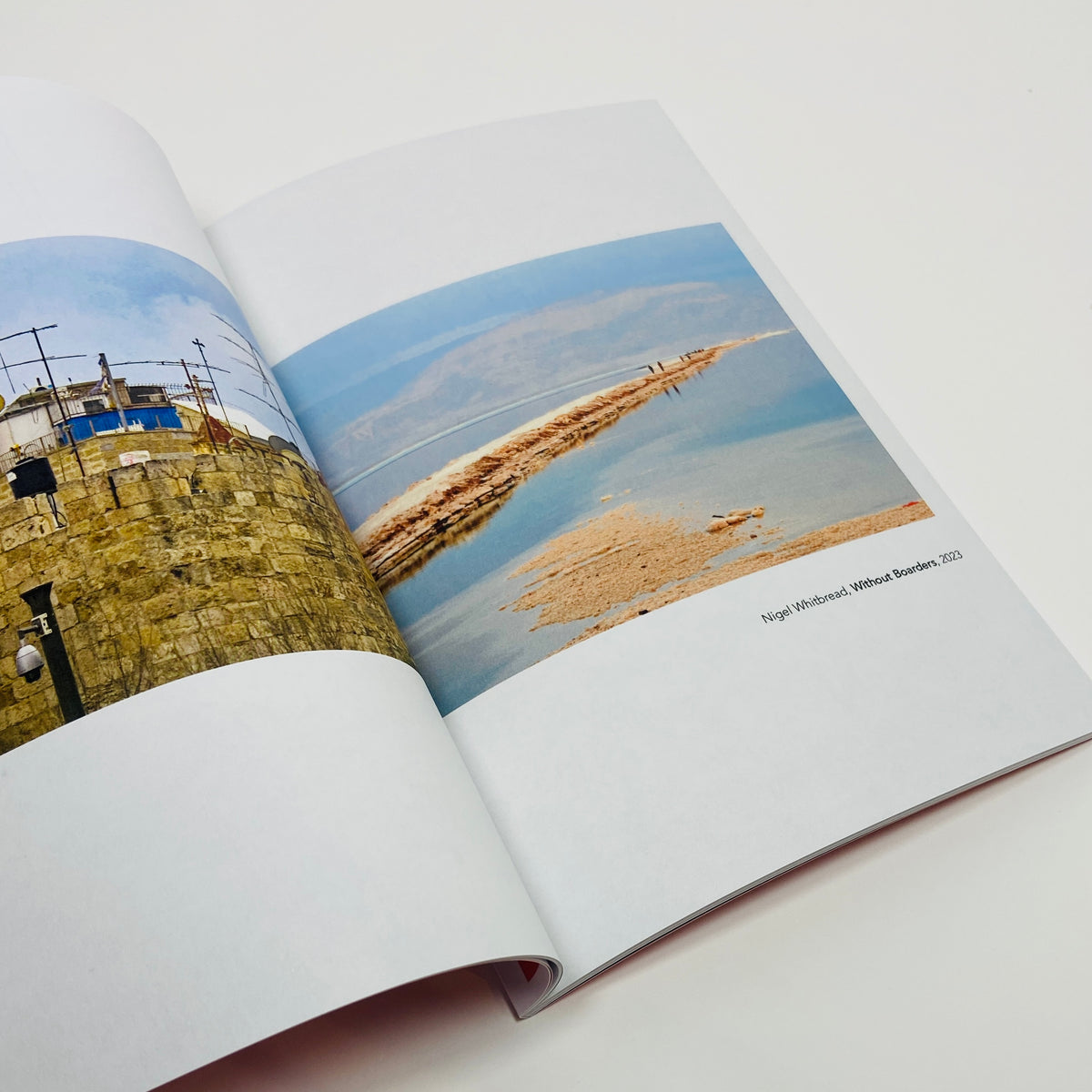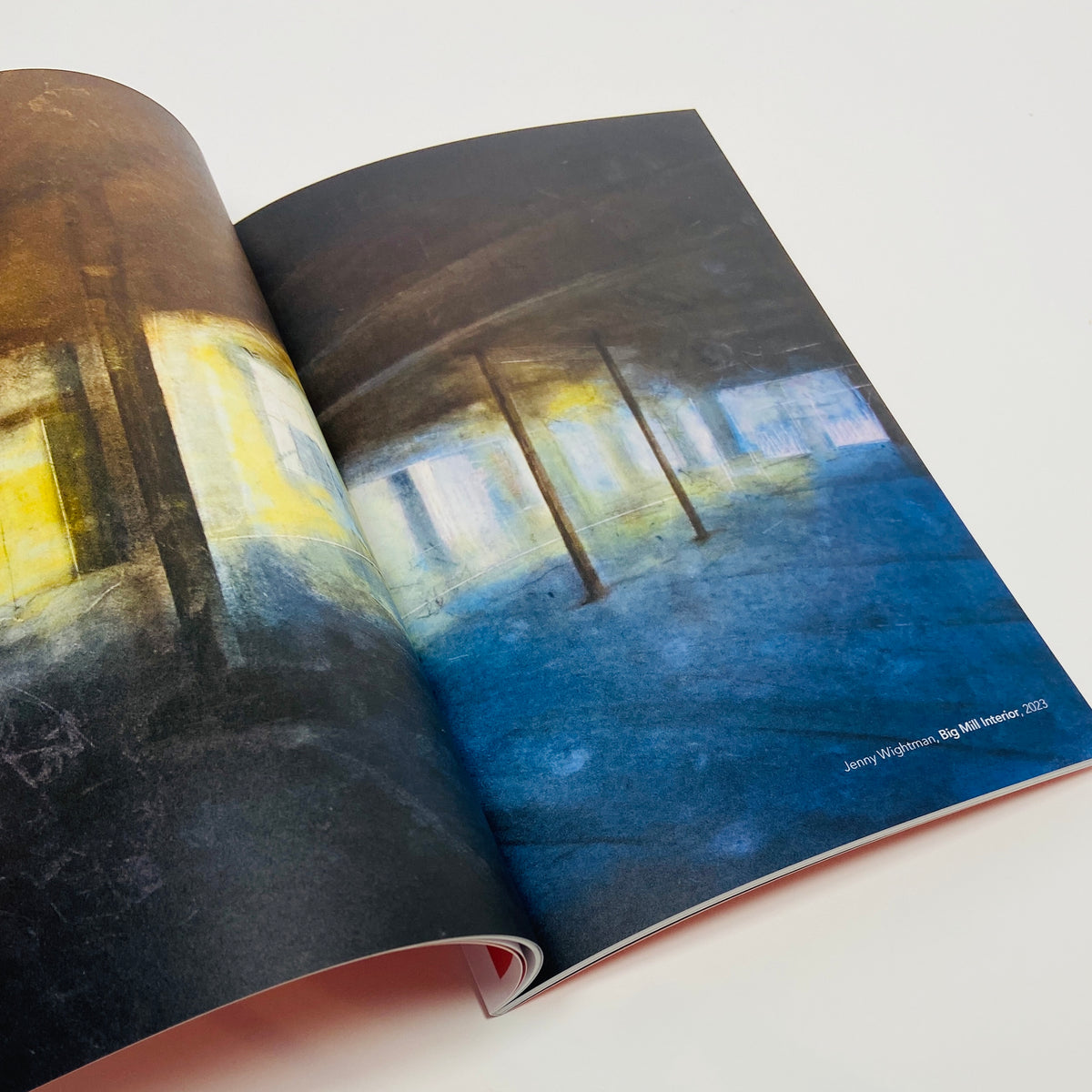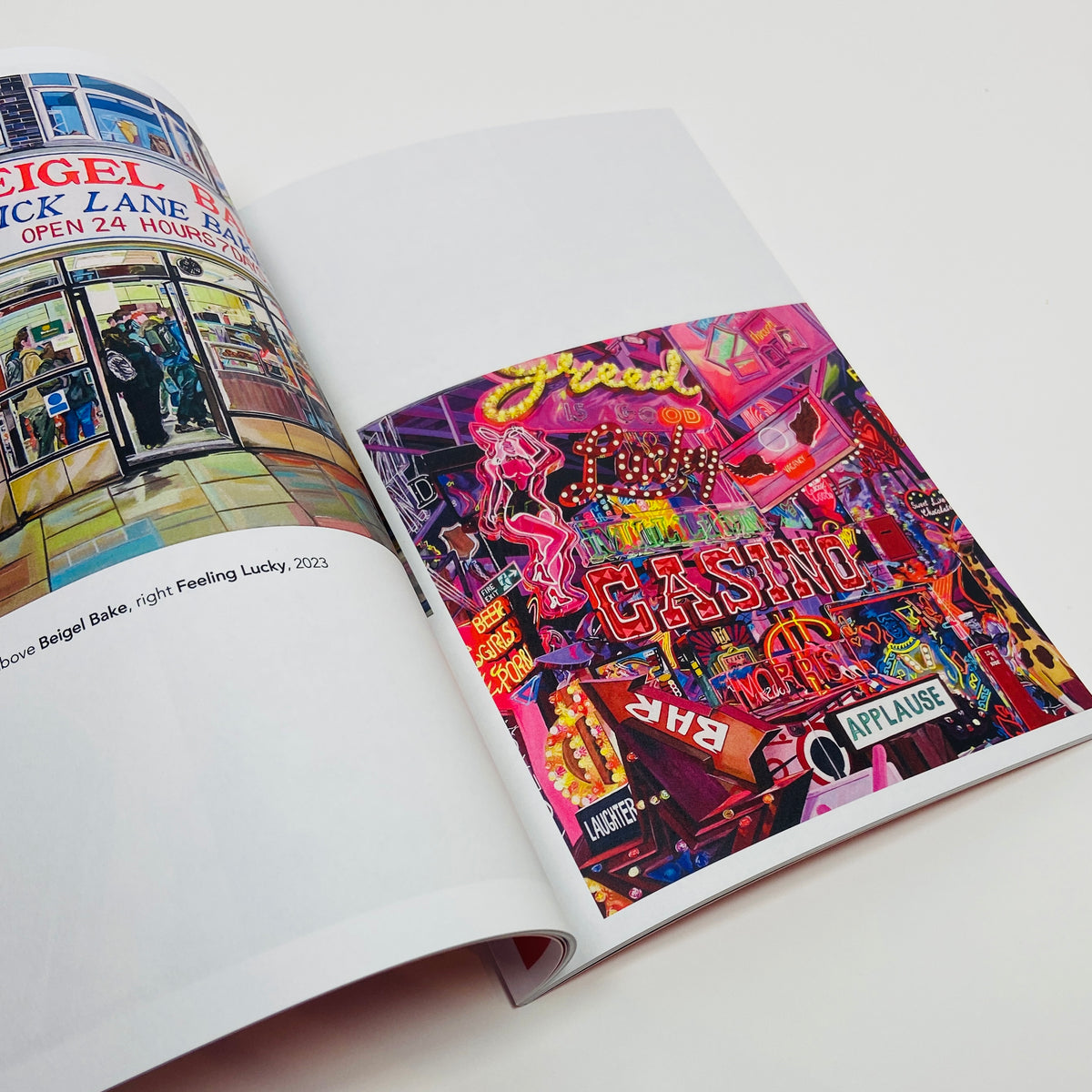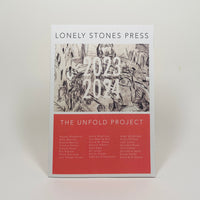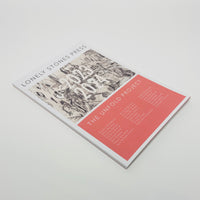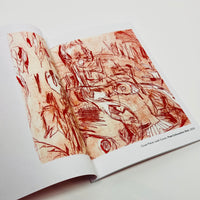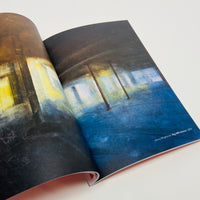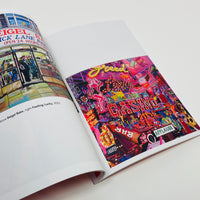The Unfold Project 2023 - 2024
- Regular
- £12.00
- Sale
- £12.00
- Regular
- Unit Price
- per
The Unfold Project 2023 - 2024
The Unfold Project celebrates emerging talents by showcasing new works of art created by graduate students and early career artists through a series of artist books and online exhibitions. The core aim of this project is to highlight the evolving dynamics of art in the digital age and to consider the ongoing changes within contemporary art institutions.
Digital technologies have significantly altered curatorial practices and the accessibility of art in both physical and digital spaces. This project aims to provide insights into how these changes impact on the inclusivity and accessibility of contemporary art, and to understand how digital tools and platforms influence the curatorial process. Increased opportunities for collaboration and audience engagement through online open calls have expanded the digital landscape of the artistic network. The integration of digital technologies into the art world is revolutionising digital curation, and this project aims to contribute to ongoing discussions about the intersection of technology and art. It also focuses on and highlights the importance of protecting art institutions.
In the broader context, 'The Art School Project' by John Beck and Matthew Cornford highlights the transformation of art institutions in the UK due to funding challenges, leading to the closure of many art schools and courses; ‘art schools may be going through a dark period but they certainly have not had their day’.
This research was instrumental in informing our own efforts to protect the arts within education, and to highlight the talent that emerges from art schools.
Over a 24-week period, we digitally introduced 24 exceptional artists and showcased a selection of their extraordinary work. We issued an open call inviting recent graduates and emerging artists to submit their work for The Unfold Project. The aim was to highlight new talent through an online exhibition and a printed publication featuring early career artists and graduates across the UK. The overwhelming response led us to select 24 artists to represent the year 2024.
Curating for this publication and our online exhibition has been an enriching journey, uniting artists around themes such as identity, place, belonging, culture, and climate. Art students from various UK institutions, covering disciplines like Fine Art, Photography, Sculpture, Painting, Textiles, and Video, participated in this project.
We seek to celebrate and preserve opportunities within the creative sector while fostering new avenues for artistic expression. Our goal is to create opportunities for people to join the creative network despite the narrowing access across the UK due to government cuts.
After over twelve years of Conservative government, art schools are under renewed pressure. In 2022, Education Secretary Gavin Williamson announced a 50% cut to arts and humanities funding in Higher Education, redirecting the money to STEM subjects (science, technology, engineering, and mathematics) and medical courses. However, the government estimates that creative industries generated £126 billion in gross value added to the economy and employed 2.4 million people in 2022. Research also shows that creative industries and the arts can positively impact well-being, such as through public health interventions. In June 2023, the government published a ‘Creative Industries Sector Vision’ which included a commitment to an additional £77 million in funding. Professor Andrew Burn from UCL (University College London) notes that the effective disappearance of media studies (media/digital art covers areas such as photography, film, sound, social media marketing, web design, animation, gaming) from the curriculum, despite its popularity, has significant consequences for future university students.
The British Academy Study found that media courses contributed £108 billion annually to the economy, and education in these subjects supports a globally leading cultural sector. Robin Mansel, Professor Emeritus at the London School of Economics stated that recognising and supporting these subjects is vital for the continued prosperity of our creativity and for the UK’s political economy, especially when we face challenges like course closures. The School of Digital Arts (SODA) at Manchester Metropolitan University, building on the strengths and reputation of Manchester School of Art, is a £35 million investment and has transformed to be a leading powerhouse of the UK’s digital economy, “where courses are informed by the real world”, Jill Griffiths, Head of the School of Digital Art.
We want to examine the impact of digital technologies on creative practices and the accessibility of art in both physical (including publications) and digital forms. To what extent do digital platforms bridge or exacerbate disparities in art accessibility? What challenges and opportunities do curators face in navigating the digital landscape? How can we protect and preserve the creative industries within education and beyond?
Curated and published by Lonely Stones Press
